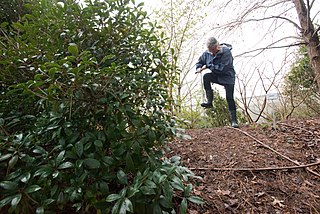
A soil test is a laboratory or in-situ analysis to determine the chemical, physical or biological characteristics of a soil. Possibly the most widely conducted soil tests are those performed to estimate the plant-available concentrations of nutrients in order to provide fertilizer recommendations in agriculture. In geotechnical engineering, soil tests can be used to determine the current physical state of the soil, the seepage properties, the shear strength and the deformation properties of the soil. Other soil tests may be used in geochemical or ecological investigations.
The 2010 Union budget of India was presented by Finance minister Pranab Mukherjee in the Lok Sabha on Friday, February 26, 2010.
Soil governance refers to the policies, strategies, and the processes of decision-making employed by nation states and local governments regarding the use of soil. Globally, governance of the soil has been limited to an agricultural perspective due to increased food insecurity from the most populated regions on earth. The Global Soil Partnership, GSP, was initiated by the Food and Agriculture Organization (FAO) and its members with the hope to improve governance of the limited soil resources of the planet in order to guarantee healthy and productive soils for a food-secure world, as well as support other essential ecosystem services.

Stubble burning is the practice of intentionally setting fire to the straw stubble that remains after grains, such as rice and wheat, have been harvested. The technique is still widespread today. Stubble burning is a common practice in India that has been increasing greenhouse gases over the past few decades fueling climate change due to the particulate matter contamination it distributes into the atmosphere.

Digital India is a campaign launched by the Government of India to make its services available to citizens electronically via improved online infrastructure and by increasing Internet connectivity. The initiative includes plans to connect rural areas with high-speed internet networks. It consists of three core components: the development of secure and stable digital infrastructure, delivering government services digitally, and universal digital literacy.
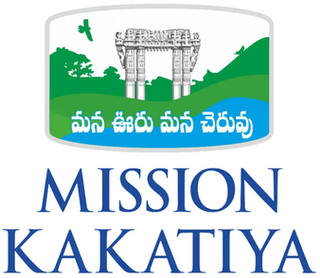
Mission Kakatiya is a scheme for restoring all the minor irrigation tanks and lakes in Telangana State, India. This scheme aims to renovate 46,531 tanks and lakes, storing 265 TMC water across the state in five years. This is the first program to be taken up by the Government of Telangana after coming into power in June 2014.
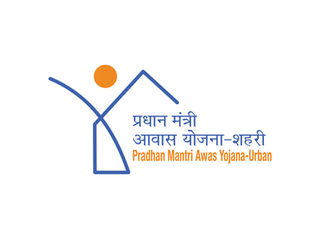
Pradhan Mantri Awas Yojana (PMAY) is a credit-linked subsidy scheme by the Government of India to facilitate access to affordable housing for the low and moderate-income residents of the country. It envisaged a target of building 2 crore (20 million) affordable houses by 31 March 2022. It has two components: Pradhan Mantri Awas Yojana(Urban) (PMAY-U) for the urban poor and Pradhan Mantri Awaas Yojana (Gramin) (PMAY-G and also PMAY-R) for the rural poor, the former administered by Ministry of Housing and Urban Affairs and the latter by Ministry of Rural Development. This scheme converges with other schemes to ensure that houses have a toilet, Saubhagya Scheme for universal electricity connection, Ujjwala Yojana LPG connection, access to drinking water and Jan Dhan banking facilities, etc.

Mahatma Jyotiba Phule Jan Arogya Yojana, previously Rajiv Gandhi Jeevandayee Arogya Yojana (RGJAY), is a Universal health care scheme run by the Government of Maharashtra for the poor people of the state of Maharashtra who holds one of the 4 cards issued by the government; Antyodaya card, Annapurna card, yellow ration card or orange ration card. The scheme was first launched in 8 districts of the Maharashtra state in July 2012 and then across all 35 districts of the state in November 2015. It provides free access to medical care in government empanelled 488 hospitals for 971 types of diseases, surgeries and therapies costing up to Rs.1,50,000 per year per family. As of 17 January 2016, around 11.81 lakh procedures amounting to Rs.1827 crore have been performed on patients from 7.13 lakh beneficiary families which includes over 7.27 lakh surgeries and therapies. The scheme is called successful amid some allegations of hospitals directly or indirectly causing patients to incur out-of-pockets expenses on some part of the treatment.
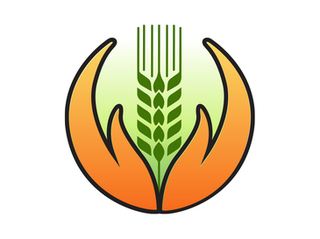
The Pradhan Mantri fasal bima yojana (PMFBY) launched on 18 February 2016 by Prime Minister Narendra Modi is an insurance service for farmers for their yields. It was formulated in line with One Nation–One Scheme theme by replacing earlier two schemes Agricultural insurance in India#National Agriculture Insurance Scheme and Modified National Agricultural Insurance Scheme by incorporating their best features and removing their inherent drawbacks (shortcomings). It aims to reduce the premium burden on farmers and ensure early settlement of crop assurance claim for the full insured sum.
Akhilesh Yadav, the Chief Minister of Uttar Pradesh announced the Uttar Pradesh Budget for 2016-17 on 12 February 2016. According to the Budget, the year 2016-17 has been announced to be the Year of the Youth and the Farmers. It was presented in Vidhan Sabha, Lucknow before the Governor and joint session of the two Houses. The ₹3.46 lakh crore (US$43 billion) Budget 2016-17 was 14% more than 2015-2016.

Pradhan Mantri Ujjwala Yojana was launched by Prime Minister of India Narendra Modi on 1 May 2016 to distribute 50 million LPG connections to women of Below Poverty Line (BPL) families. A budgetary allocation of ₹80 billion (US$1.0 billion) was made for the scheme. The scheme was replaced by the Ujjwala Yojana 2.0 in 2021.
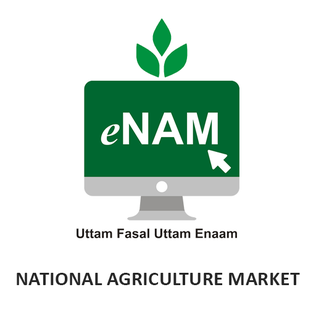
National Agriculture Market or eNAM is an online trading platform for agricultural commodities in India. The market facilitates farmers, traders and buyers with online trading in commodities.

The premiership of Narendra Modi began on 26 May 2014 with his swearing-in as the Prime Minister of India at the Rashtrapati Bhavan. He became the 14th Prime Minister of India, succeeding Manmohan Singh of the Indian National Congress. Modi's first cabinet consisted of 45 ministers, 25 fewer than the previous United Progressive Alliance government. 21 ministers were added to the council of ministers on 9 November 2014.
Rythu Bandhu scheme, also known as Farmer's Investment Support Scheme (FISS), is a welfare program to support farmer’s investment for two crops a year by the Government of Telangana. The government is providing 58.33 lakh (5.8 million) farmers ₹5000 per acre per season to support the farm investment, twice a year, for rabi (winter) and kharif (rainy) seasons. This is a first direct farmer investment support scheme in India, where the cash is paid directly.

Ayushman Bharat Pradhan Mantri Jan Arogya Yojana is a national public health insurance scheme of the Government of India that aims to provide free access to health insurance coverage for low income earners in the country. Roughly, the bottom 50% of the country qualifies for this scheme. People using the program access their own primary care services from a family doctor and when anyone needs additional care, PM-JAY provides free secondary health care for those needing specialist treatment and tertiary health care for those requiring hospitalization.
Biju Swasthya Kalyan Yojana is a universal health coverage scheme launched by Chief Minister of Odisha, Naveen Patnaik. The program extends coverage to approximately 70 lakh families, with the state government allocating a budget of 250 crore rupees. Services:
- Free health services are available in all state government health care facilities, starting from the subcenter level up to the district headquarter hospital level, with Swasthya Mitras deployed at help desk.
- Annual health coverage of Rs 5 lakhs per family and 7 lakhs per female members of the family.
Pradhan Mantri Garib Kalyan Anna Yojana is a food security welfare scheme announced by the Government of India on March 26 2020, during the COVID-19 pandemic in India. The program is operated by the Department of Food and Public Distribution under the Ministry of Consumer Affairs, Food and Public Distribution. But the nodal ministry is Ministry of Finance.The scale of this welfare scheme makes it the largest food security program in the world benefiting 81.35 crore in India.
National Action Plan for Climate Change (NAPCC) is a Government of India's programme launched in 2008 to mitigate and adapt to the adverse impact of climate change. The action plan is designed and published under the guidance of Prime Minister’s Council on Climate Change (PMCCC). The 8 sub-missions aimed at fulfilling India's developmental objectives with focus on reducing emission intensity of its economy. The plan will rely on the support from the developed countries with the prime focus of keeping its carbon emissions below the developed economies at any point of time. The 8 missions under NAPCC are as follows:
Svamitva Scheme is a property survey program launched by Indian Prime Minister Narendra Modi on April 24, 2020, as a central-sector scheme to promote socio-economic empowerment and a more self-reliant rural India. About 6.62 lakh villages across the country will be surveyed in this scheme from 2021 to 2025, using varied technology including drones to collect property data. The initial phase of the scheme was implemented during 2020-21 in the select villages of Maharashtra, Karnataka, Haryana, Uttar Pradesh, Uttarakhand, Madhya Pradesh, Punjab and Rajasthan.










